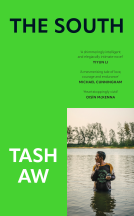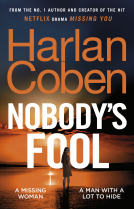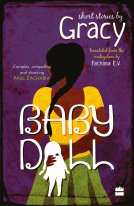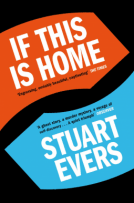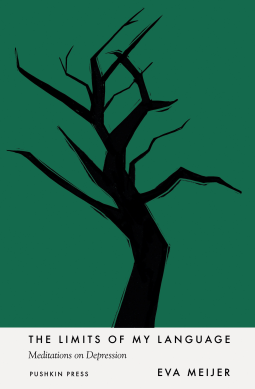
The Limits of My Language
Meditations on Depression
by Eva Meijer
This title was previously available on NetGalley and is now archived.
Send NetGalley books directly to your Kindle or Kindle app
1
To read on a Kindle or Kindle app, please add kindle@netgalley.com as an approved email address to receive files in your Amazon account. Click here for step-by-step instructions.
2
Also find your Kindle email address within your Amazon account, and enter it here.
Pub Date 18 Apr 2023 | Archive Date 17 Apr 2023
Talking about this book? Use #TheLimitsofMyLanguage #NetGalley. More hashtag tips!
Description
An intimate study of depression that draws on personal experience and a deep knowledge of philosophy—perfect for fans of Maggie Nelson and Leslie Jamison
The Limits of My Language is both a razor-sharp analysis of depression and a steadfast search for the things great and small -- from philosophy and art to walking a dog or sitting quietly with a cat -- that make our lives worth living.
Much has been written about the treatment of depression, but relatively little about its meaning. In this strikingly original book, Eva Meijer weaves her own experiences and the insights of thinkers from Freud to Foucault and Woolf into a moving and incisive evocation of the condition.
Depression is more than a chemical problem—the questions that occupy someone with depression are fundamentally human, and they touch on other philosophical questions that concern language, autonomy, power relations, loneliness, and the relationship between body and mind. But this book-length essay is also about the other side, such as animals, trees, others, art: about consolation, and hope, and the things that can give life meaning.
The Limits of My Language explores how depression can make us grow out of shape over time, like a twisted tree, how we can sometimes remould ourselves in conversation with others, and how to move on from our darkest thoughts.
Available Editions
| EDITION | Other Format |
| ISBN | 9781782275992 |
| PRICE | US$16.95 (USD) |
| PAGES | 144 |
Available on NetGalley
Featured Reviews
Such a beautifully written book I loved so much and found myself in a lot of it. It was so captivating and i really loved how honest it felt. Definitely one I will go back and reread.
 Stephen B, Librarian
Stephen B, Librarian
First published in 2019 (pre-COVID), Meijer's short book on depression is finally being published here in the US. My thanks to NetGalley and Pushkin Press for an e-ARC.
Philosopher, animal philosopher (human and non-human), musician, novelist, scholar, artist and performance artist Meijer makes use of it all in this short, but not quick, book. Based on her own depression (about 7 years, from age 14 to her early 20's, including anorexia - and occasional bouts since) the first 2 chapters are impressive redefinitions of how we define and describe depression.
That she can explain philosophical movements, from Aristotle to the Existentialists, in a few words makes me want to take a class from her! And she does not so much judge which philosophy is "right", as explain the POV of each, and what they have to offer us as we view, understand, and live in the greater world. But she does give emphasis to later Wittgenstein, and his writings on language (like depression and the world, there is a seperation between words and what they represent in the real world). She also brings in artists, from pop musician Kristin Hersh to Woolf to Stryon. Heavily annotated with informative Notes.
For me her weakest chapter was the 3rd, where she describes her own treatment, including years on an anti-depression prescription. But as she moves on she stresses over and over that each case is your own, and while discipline and self-awareness of changes in her life and attitude ring alarms to an oncoming bout, that one must find their own way to deal with their depression. Which may include clinics, drugs, or even suicide.
A brilliant academician (she has about 15 titles published, this is only about her 4th or 5th to be published in the US), she still can easily flow from Sartre to "sending cards always helps" on how friends and family can support you when you are depressed.
Reading the first page of this got me to drop the book I was reading and dive into this instead. I have always had an interest in "melancholia" (which she talks about as part of the history of depression). And while I have mourned (the difference between that and depression is also discussed here) and had a few "blue periods", I have never had months or years of ongoing depression. Still, I found this helpful and interesting, and rather brilliant. The mix between philosophy, culture, medicine, art, and her own life makes this a vibrant book.
And in the last couple of pages she cheerfully reminds us how small and unimportant we are in the greater scheme of all things - get over it!
I am not sure I will read either of her books on non-human animal communication (some of which is used as an approach in this title as well - and again relies on later Wittgenstein and his study of language ), but I do have her novel "Bird Cottage" on order.
A beautiful written book that will simply put you at ease. I found this book incredibly useful and have re referred to it. Highly recommend. Flows beautifully and relaxing while you read
 Reviewer 1090209
Reviewer 1090209
Very refreshing to read an academic account of depression based on personal experience. It wasn't too clinical yet didn't read too much like a blog post. It was a quick read, easy to dip in and out of in between other reads. The middle portion felt a bit messy at times but overall the book was solid.
I'd recommend this to people who have experienced these things in the past. I don't think it's a good one if you're currently "going through it". It could also be a good insight for those out there who haven't experienced depression at all.
 Reviewer 354493
Reviewer 354493
Fascinating essay that describes not just the author’s own depressions and experience with an eating disorder, but also a consideration of the boundaries that frame it, the shape it takes. One I have been thinking about from time to time since I finished it.
The Limits of My Language by Eva Meijer is an account of a woman struggling with recurrent depression and anorexia nervosa. The book is not trying to be the perfect guide to either illnesses, but it is more of a personal yet alternative 'lens to investigate the structure and significance of depression', meaning that it is essentially a limited perspective of someone diving in and out of debilitating depressive episodes. The author questions the meaning of depression itself; does it carry other purposes other than draining a person of purpose and life energy? What does it mean to be mentally disturbed than the next person? Does madness comes only in one color? If not, surely depression is something that affects everyone differently despite the universal agreements of its recurrent and consistent symptoms in the bible of a diagnostic manual.
Meijer majored in philosophy and her enthusiasm towards it is apparent in ways she relates to her depression with fundamental philosophy questions. She proposes that depressed people tend to mull over their value as a person and their work ethics more frequently, hence the urgency to realize themselves, become disciplined and more militant. I love that almost all perspectives were considered when the topic shifted to the causes of depression. Meijer left nobody out; you can be sick because of work, because of genetics, or because of nothing at all. Creatives are prone to bipolar disorder, schizophrenia and other flavor of madness as if it is as natural as the Earth revolving around the sun.
The rich references to foreign books, authors and artists is my favorite part of the book. She relates her life happenings to certain quotes or figures, and that solidifies the feeling that you're not alone in this loneliness. The harsh truth that one would never recover is also featured in some chapters, and the importance of community. Meijer to reject the 'atomistic view of people' and is graceful about it. It is hard to convince readers that meanings are fluid when one's life experiences is deeply tied with unreality. That makes her work a must-read for people who seeks to understand the contradictory nature of mental illness, its relations with human 'nature', or if one just wants another person to speak out what's on their blacked out mind.
Thank you to Netgalley and the publisher for the e-arc in exchange for an honest review.
I felt this was such a moving exploration of what it feels to suffer from depression. Its a debilitating disorder that affect both mind and body, a disorder that still frowned upon by some countries. The author spoke about her life in ways I can relate, thr sincerity she poured into this memoir was incredible. I like that she inserted literature, arts as a form of expressing her feelings and how they affect the connotation of depression. Overall, a brilliant read
A deep meditation on the depths of depression, and the myriad ways it manifests in the lives of those it affects.
🙏 Thanks to @netgalley and @pushkinpress for my ARC in exchange for an honest review
🖋 "When people write about depression they often use fine words to describe it... I see depression more as an absence than a presence. Everything worthwhile is slowly scrapped away and all that remains is bare rock."
Coming from a writer and artist who has experienced the disease, "The Limits of My Language" is a collection of short essays looking at depression, both personally and philosophically. We get everything from thoughts on Camus to the ways the writer copes with the disease (walks with dog, medication as a last result), all through the lens of a philosophy student (I believe the title of the book is a quote from Wittgenstein).
💭 It's often a meandering collection, and certain parts of the books appealed less than others, but I enjoyed the writer's thoughts on her condition and how it has affected her life, and her attempts to suggest help for others. That said, I feel that perhaps this latter part was so attractive because it mirrored my own thoughts and experiences dealing with depression in the past. People may not feel the same about thoughts such as:
🖋 "When you're depressed, you have to work really hard just to keep your footing, and talking to friends or family can make things worse, because you then have to respond to their sadness, fear, worries and disbelief".
I get that 100%, but others may rile against the implied advice here. Take it as opinion rather than a guide.
💭 Overall, a very interesting read, one I still think about. Recommended
This book takes as its central discussion point depression and depressive episodes, and explores the research, science and personal side of all of it. We are taken through various parts of her own personal story and the impact it has on her.
I would say it serves as more of an introduction piece rather than being more in-depth at times, but is no less valuable for that.



